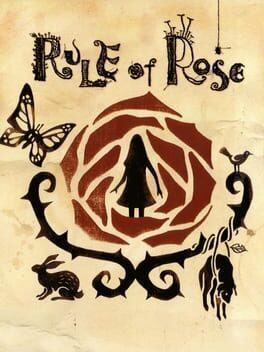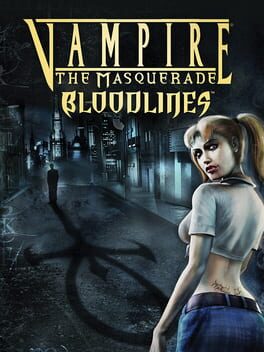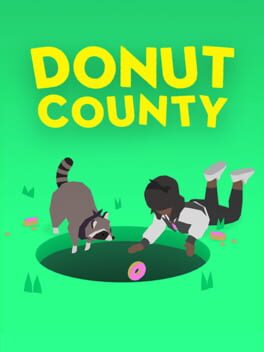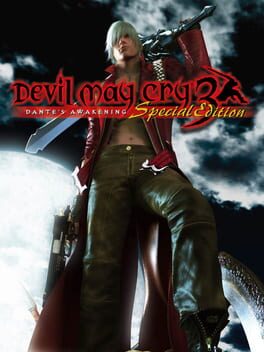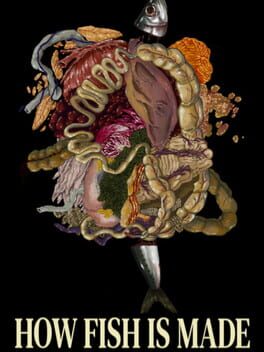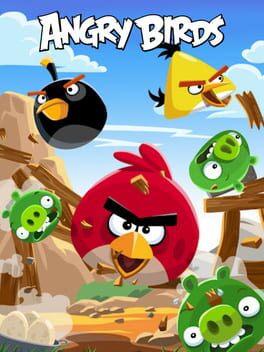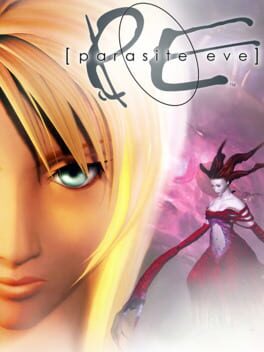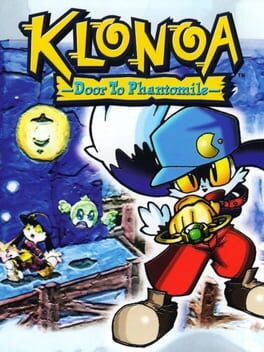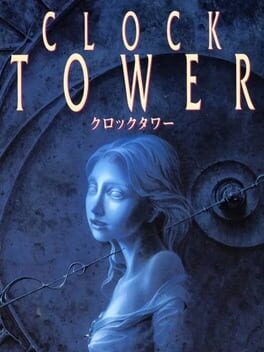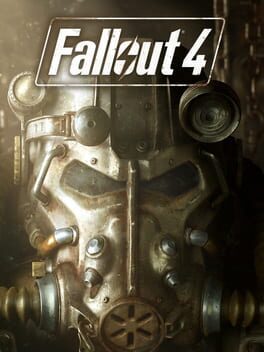melerk
47 Reviews liked by melerk
This town has been taken over, too. By countless, faceless ghosts. ▋
The Silver Case at its surface is a story of what can happen when you try to kill your past. Can you kill the past? Play the games and find out, but it is an indisputable fact that attempting to do so will lead you into strange directions, which is what lies beneath the surface. More likely than not your past will end up changing you. Consumed by the past. Consumed by the darkness. This is why it has to be killed, or else it kills you.
The 25th Ward is a twist in perspectives of how the past is tackled by different people. Some face it head on, some have to find it, some are so consumed by it that they are unaware of what it truly is. These are Matchmaker, Placebo, and Correctness respectively (at least that’s how i interpreted it). Just like the original game, all of the storylines bounce off one another while still filling in each other’s story gaps in a focused on-the-edge-of-your-seat way.
I’m gonna be real with y’all I have almost no fucking idea what to write next. I broke up my play sessions to give myself time to absorb the story. I spent two days after finishing it contemplating what the hell I was even going to write, and now I’m here. Sitting alone in my living room listening to Phantogram’s Eyelid Movies in somber over a video game. I still don’t know what to say. Video games have impacted me heavily in the past but none as strangely and uniquely as the Kill the Past series so far. The 25th Ward is the perfect embodiment of Suda’s expression in the industry and how far he can go. A complexity of ideas and themes intertwined to articulate, at its core, human ideologies. It’s all paced so well that when I reached the end I thought, “That’s the end?” but not necessarily in a negative way at all. Every point the game strove to get across was proven effectively, I was just a bit sad to see one of my favorite video game stories come to a close. I wanted more because it was so amazing. Admittedly I also wanted more time to figure out what the fuck had happened for the last 13~ hours lol. I wish I could go more in depth but if I did I would probably be spouting nonsense regarding spoilers and whatnot.
What I CAN explain though is the expertly arranged presentation and soundtrack. The boxed-in contemporary style of the original game is modernized and accentuated to an extreme. This could possibly be my favorite visual style of any video game. Background elements are now more distinctly interesting and support the themes of the current chapter even better. The color palettes used are also a lot more colorful which I’m absolutely down for. The artists for each of the storylines did spectacularly; I especially love the art style used for Correctness with its black and white pastel tones accompanied by infrequent splashes of color to make everything pop. Everything is just a marvel to look at. The typewriter sound is unchanged just the way I like it. I find it to be an insanely satisfying sound that’s just the cherry on top of everything else the game has to offer. The soundtrack is exactly what I love in electronic music and it's incredibly fitting. Love beat bumpin’ shit like the classic Metropolitan Edge and groovy Galaxy Glitch Groove by Akira Yamaoka of Silent Hill fame, while also vibing hard with Sandalwood and DRIFT. Every track hits me in the feels in incomparable ways. All of this is in tandem with one another becomes, what I feel to be, an unparalleled artistic composition in gaming.
The 25th Ward: The Silver Case is a wildly intense game that will continue to float around my brain for a long time. If you couldn’t tell already, this is everything I loved about the original Silver case and more. There’s honestly nothing I would change about it. Every character is identifiable and the writing stays consistently engaging throughout. Love Jabroni, love Tokio (as usual), love Osato (he’s a little bit of a quirked up white boy). This is a video game for me. It doesn’t conform to industry standards and does its own thing in an astounding manner.
I wish a great rain would fall on this town. And that everything would melt in the rain and be washed away. To the bottom of the ocean. ▋
The Silver Case at its surface is a story of what can happen when you try to kill your past. Can you kill the past? Play the games and find out, but it is an indisputable fact that attempting to do so will lead you into strange directions, which is what lies beneath the surface. More likely than not your past will end up changing you. Consumed by the past. Consumed by the darkness. This is why it has to be killed, or else it kills you.
The 25th Ward is a twist in perspectives of how the past is tackled by different people. Some face it head on, some have to find it, some are so consumed by it that they are unaware of what it truly is. These are Matchmaker, Placebo, and Correctness respectively (at least that’s how i interpreted it). Just like the original game, all of the storylines bounce off one another while still filling in each other’s story gaps in a focused on-the-edge-of-your-seat way.
I’m gonna be real with y’all I have almost no fucking idea what to write next. I broke up my play sessions to give myself time to absorb the story. I spent two days after finishing it contemplating what the hell I was even going to write, and now I’m here. Sitting alone in my living room listening to Phantogram’s Eyelid Movies in somber over a video game. I still don’t know what to say. Video games have impacted me heavily in the past but none as strangely and uniquely as the Kill the Past series so far. The 25th Ward is the perfect embodiment of Suda’s expression in the industry and how far he can go. A complexity of ideas and themes intertwined to articulate, at its core, human ideologies. It’s all paced so well that when I reached the end I thought, “That’s the end?” but not necessarily in a negative way at all. Every point the game strove to get across was proven effectively, I was just a bit sad to see one of my favorite video game stories come to a close. I wanted more because it was so amazing. Admittedly I also wanted more time to figure out what the fuck had happened for the last 13~ hours lol. I wish I could go more in depth but if I did I would probably be spouting nonsense regarding spoilers and whatnot.
What I CAN explain though is the expertly arranged presentation and soundtrack. The boxed-in contemporary style of the original game is modernized and accentuated to an extreme. This could possibly be my favorite visual style of any video game. Background elements are now more distinctly interesting and support the themes of the current chapter even better. The color palettes used are also a lot more colorful which I’m absolutely down for. The artists for each of the storylines did spectacularly; I especially love the art style used for Correctness with its black and white pastel tones accompanied by infrequent splashes of color to make everything pop. Everything is just a marvel to look at. The typewriter sound is unchanged just the way I like it. I find it to be an insanely satisfying sound that’s just the cherry on top of everything else the game has to offer. The soundtrack is exactly what I love in electronic music and it's incredibly fitting. Love beat bumpin’ shit like the classic Metropolitan Edge and groovy Galaxy Glitch Groove by Akira Yamaoka of Silent Hill fame, while also vibing hard with Sandalwood and DRIFT. Every track hits me in the feels in incomparable ways. All of this is in tandem with one another becomes, what I feel to be, an unparalleled artistic composition in gaming.
The 25th Ward: The Silver Case is a wildly intense game that will continue to float around my brain for a long time. If you couldn’t tell already, this is everything I loved about the original Silver case and more. There’s honestly nothing I would change about it. Every character is identifiable and the writing stays consistently engaging throughout. Love Jabroni, love Tokio (as usual), love Osato (he’s a little bit of a quirked up white boy). This is a video game for me. It doesn’t conform to industry standards and does its own thing in an astounding manner.
I wish a great rain would fall on this town. And that everything would melt in the rain and be washed away. To the bottom of the ocean. ▋
The greatest game ever made. A gigantic achievement in both gaming and art as a whole. Every similar game made in Disco's wake will fall behind it in some aspect, because it may genuinely be impossible to recapture this energy. Fuck the suits who ruined ZAUM, and I hope that the amazing team behind this masterpiece gets to try again someday.
Rule of Rose
2006
this game exists at this weird intersection of "absolutely amazing, groundbreaking narrative" and "borderline unplayable dogshit gameplay" and i don't really know how to quantify that with a numeric score; can i just score it a question mark instead?
if this game did better then the red crayon aristocrats could have been the root for an entire generation of wlw
if this game did better then the red crayon aristocrats could have been the root for an entire generation of wlw
Killer7
2005
Donut County
2018
once i read a summary of an academic paper that argued that donut county and katamari damacy were inherently queer games, not because they included any queer content but because the act of consuming/putting things in holes/eating things is an inherently queer act and i think it was that moment that helped me take the leap and begin the process of finding the right therapist for my needs
anyway the game is incredibly mid
anyway the game is incredibly mid
The Silver Case
2016
TSC is a game about the deprivation of choice. The protagonist is a faceless mute, dragged around by the whims of fate and all but shown how powerless he is. The characters you meet are burnouts, miserable, traumatized killers, stubborn old men without futures.
I'm iffy on the ADV/VN genre space. Just how I am. I can read a book no problem, but the thought of sitting down in front of a strict text crawl makes me want to jump out of my skin a little bit. TSC uses the gameplay framework of ADV/VNs to direct the feeling of powerlessness. There are no flowcharts, no failstates, hardly any objectives worth completing in a meaningful way. It's hard not to compare this use of the gameplay framework to Suda51's excellent Killer7, which uses the power-fantasy aspect of first-person shooters as a form of terror.
It's hard to really say anything about TSC that hasnt already been stated by both my friends and critics far smarter than I. It's a wholly singular piece of media that uses its genre trappings with lethal efficiency. Kill the past.
I'm iffy on the ADV/VN genre space. Just how I am. I can read a book no problem, but the thought of sitting down in front of a strict text crawl makes me want to jump out of my skin a little bit. TSC uses the gameplay framework of ADV/VNs to direct the feeling of powerlessness. There are no flowcharts, no failstates, hardly any objectives worth completing in a meaningful way. It's hard not to compare this use of the gameplay framework to Suda51's excellent Killer7, which uses the power-fantasy aspect of first-person shooters as a form of terror.
It's hard to really say anything about TSC that hasnt already been stated by both my friends and critics far smarter than I. It's a wholly singular piece of media that uses its genre trappings with lethal efficiency. Kill the past.
Dmc3 is a game that is dripping with style with every sss combo you get in this game you feel like you're after sniffing a brick house of cocaine, The bosses were very hit and miss with REALLY REALLY high highs (Vergils fights, Nevan, Cerberus) but bottom of the pit lows (Levithan Heart, Beowulf and Arkham), the Combat felt incredibly satisfying but the only complaint i have is the camera which would throw my combos off when it suddenly switched, I'll always love games that not only want to make you better at them but actively make you feel good for getting better and dmc3 does that perfectly i fucking love this game
How Fish Is Made
2022
Angry Birds
2009
Parasite Eve
1998
At its core, Parasite Eve is experimental, and mostly, proves itself to be one of the most unique entries in Square’s gigantic gaming catalog. Like its famously recognizable siblings in the Final Fantasy franchise, Parasite Eve is another game which defined Square’s tenure as both developers and as a company in making ambitiously cinematic experiences for the PS1 generation. Interestingly, this is a detail that’s advertised more bluntly with the game compared to any of the FF games released at the time, being dubbed by Square as a “cinematic RPG”. But it makes sense because Parasite Eve is clearly a game with a closer focus on fellow underrated Square protagonist, Aya Brea, trying to investigate a mysterious threat which has deeper ties to her own history. The presentation is very cut and dry, there’s almost a grungy Hollywood twist to it, with the story it’s telling and how they built the gameplay around it for players to invest themselves in the horror going on.
The hybridization between the traditional JRPG mechanics Square is renowned for and the survivor horror gameplay that was trendy at the time lends itself towards an interesting experience that’s baked very well. It manages to almost never overstay its own welcome by having a refreshingly limited playtime, solid pacing, and engaging combat which cribs from many turn-based JRPG mechanics together with survival horror design tropes to create what I could only describe is a less refined prototype of FFVII Remake’s combat. If there is one gripe I have with this idea is that the item management and loot system isn’t executed as well as you’d hope. In trying to adhere to survival horror gameplay, there’s naturally supposed to be a scarcity of the resources you can gain throughout the game. You fight enemies primarily with guns, given the more realistic backdrop setting we’re in, and so you have to be careful with the ammo you find to make every shot count. It really pushes you to think just a bit more strategically on the way you customize your equipment and what you’re hoarding (there’s an inventory limit) in order to get the upper-hand in a life-or-death situation. But here’s where trying to also adhere to JRPG mechanics leaves this gameplay concept muddled. You should feel you’re ultimately still a bit helpless and unsure of your absolute protection, encouraging you to get better and smarter while horrific enemies can just randomly appear to fight you. However, in what I assume is a compromise between two different gameplay styles, the game makes every random encounter usually give you way more ammo than you thought you’d ever need. This doesn’t happen right away but as you continue playing, and as you continue to fight more enemies and find hidden loot, you piled enough ammo that you can probably never worry about lucking out hard in the last few days. Also, the game has a tendency to force useless items into your already limited inventory that doesn’t benefit you and becomes annoying because you can’t always get rid of them right away.
Yoko Shimomura’s soundtrack is a stark difference from her career defining work in Kingdom Hearts, and I mean in a wonderful way. It doesn’t quite maintain this in the latter half but her musical stylings were necessary in creating one of the most engrossingly atmospheric settings to be found in the PS1. There’s a stroke of genius in adopting the iconic fixed isometric backgrounds from the PS1 Final Fantasy titles, taking advantage of how visually eerie they already are, and working it through the dark urbanized city setting to really make you feel claustrophobic and unaware of what might happen. It’s worth mentioning that the cinematics in this “cinematic RPG” are still outstanding, even going beyond the purely technical level. There’s a lot of well-done body horror sequences which ironically the dated look of it only adds to make it feel unsettling, and Square still took advantage of making them feel like a big theatrical blockbuster for the PS1. While it feels very grounded in its approach, it does shed away that perfectly chilling atmosphere when the stakes continue to be raised and the plot becomes a bit dumb. It doesn’t ruin the experience, I still enjoy the silly b-movie horror stuff that happens, but the last stretch weakens it enough to prevent me from completely loving it. The level design becomes obtuse to navigate through (the entire Museum section is a very poor example for this), and the last few bosses can be very frustrating if you haven’t built enough endurance or patience to die multiple times while figuring out how to beat them. Even then, it almost becomes a lengthy battle of attrition in running around and spamming Haste/Barrier/Heal if the PE meter fills quickly enough. I have a great suspicion the post-game dungeon to get the second true ending isn’t really worth it for similar reasons so I might save it for another time.
Putting aside my gripes, Parasite Eve is still an all-around banger. I only wish Squeenix would go back to this game and try to bring it back from the ground up, it’s very easy to do the full FFVII Remake treatment here, honestly. There’s a lot of really solid groundwork built here to make it a mainstay franchise today even if it means sidestepping the awkward situation with the sequels which I guess killed this series by making it into just a worse Resident Evil clone.
The hybridization between the traditional JRPG mechanics Square is renowned for and the survivor horror gameplay that was trendy at the time lends itself towards an interesting experience that’s baked very well. It manages to almost never overstay its own welcome by having a refreshingly limited playtime, solid pacing, and engaging combat which cribs from many turn-based JRPG mechanics together with survival horror design tropes to create what I could only describe is a less refined prototype of FFVII Remake’s combat. If there is one gripe I have with this idea is that the item management and loot system isn’t executed as well as you’d hope. In trying to adhere to survival horror gameplay, there’s naturally supposed to be a scarcity of the resources you can gain throughout the game. You fight enemies primarily with guns, given the more realistic backdrop setting we’re in, and so you have to be careful with the ammo you find to make every shot count. It really pushes you to think just a bit more strategically on the way you customize your equipment and what you’re hoarding (there’s an inventory limit) in order to get the upper-hand in a life-or-death situation. But here’s where trying to also adhere to JRPG mechanics leaves this gameplay concept muddled. You should feel you’re ultimately still a bit helpless and unsure of your absolute protection, encouraging you to get better and smarter while horrific enemies can just randomly appear to fight you. However, in what I assume is a compromise between two different gameplay styles, the game makes every random encounter usually give you way more ammo than you thought you’d ever need. This doesn’t happen right away but as you continue playing, and as you continue to fight more enemies and find hidden loot, you piled enough ammo that you can probably never worry about lucking out hard in the last few days. Also, the game has a tendency to force useless items into your already limited inventory that doesn’t benefit you and becomes annoying because you can’t always get rid of them right away.
Yoko Shimomura’s soundtrack is a stark difference from her career defining work in Kingdom Hearts, and I mean in a wonderful way. It doesn’t quite maintain this in the latter half but her musical stylings were necessary in creating one of the most engrossingly atmospheric settings to be found in the PS1. There’s a stroke of genius in adopting the iconic fixed isometric backgrounds from the PS1 Final Fantasy titles, taking advantage of how visually eerie they already are, and working it through the dark urbanized city setting to really make you feel claustrophobic and unaware of what might happen. It’s worth mentioning that the cinematics in this “cinematic RPG” are still outstanding, even going beyond the purely technical level. There’s a lot of well-done body horror sequences which ironically the dated look of it only adds to make it feel unsettling, and Square still took advantage of making them feel like a big theatrical blockbuster for the PS1. While it feels very grounded in its approach, it does shed away that perfectly chilling atmosphere when the stakes continue to be raised and the plot becomes a bit dumb. It doesn’t ruin the experience, I still enjoy the silly b-movie horror stuff that happens, but the last stretch weakens it enough to prevent me from completely loving it. The level design becomes obtuse to navigate through (the entire Museum section is a very poor example for this), and the last few bosses can be very frustrating if you haven’t built enough endurance or patience to die multiple times while figuring out how to beat them. Even then, it almost becomes a lengthy battle of attrition in running around and spamming Haste/Barrier/Heal if the PE meter fills quickly enough. I have a great suspicion the post-game dungeon to get the second true ending isn’t really worth it for similar reasons so I might save it for another time.
Putting aside my gripes, Parasite Eve is still an all-around banger. I only wish Squeenix would go back to this game and try to bring it back from the ground up, it’s very easy to do the full FFVII Remake treatment here, honestly. There’s a lot of really solid groundwork built here to make it a mainstay franchise today even if it means sidestepping the awkward situation with the sequels which I guess killed this series by making it into just a worse Resident Evil clone.
Clock Tower
1995
In my younger days, my impression of 90s Japanese horror/thriller movies is that they went all-in on atmosphere, sometimes at the expense of plot. A tad reductive, but I think there's some truth to it - and that quality is evident in this matriarch of Survival Horror. The 'creepy mansion' vibes are immaculate, and the idea of using the main character's psychological state in lieu of a health bar is a masterstroke. Even the game's slow pacing adds to the atmosphere, with your character's slow walk cycle emphasizing her frailty, but also the long stretches of time without running into Scissorman ratcheting up the tension, something akin to the panic that sets in when you realize your kids in the next room are being abnormally quiet...
With vibes like these, I'm totally willing to put up with the slow gameplay and the relative lack of ways to evade/hide from Scissorman. However, I feel like the game is extremely skimpy on lore. The point-and-click interface is the perfect medium for making every object and room tell a story, and it seems quite underutilized, even accounting for details getting left out in the fan-translation. While it is possible to piece together everything that's going on in the mansion through contextual clues, it will typically take a few playthroughs, and that's more than enough time for the atmosphere to wear out its welcome.
Endings unlocked: S/C/D/G
With vibes like these, I'm totally willing to put up with the slow gameplay and the relative lack of ways to evade/hide from Scissorman. However, I feel like the game is extremely skimpy on lore. The point-and-click interface is the perfect medium for making every object and room tell a story, and it seems quite underutilized, even accounting for details getting left out in the fan-translation. While it is possible to piece together everything that's going on in the mansion through contextual clues, it will typically take a few playthroughs, and that's more than enough time for the atmosphere to wear out its welcome.
Endings unlocked: S/C/D/G


